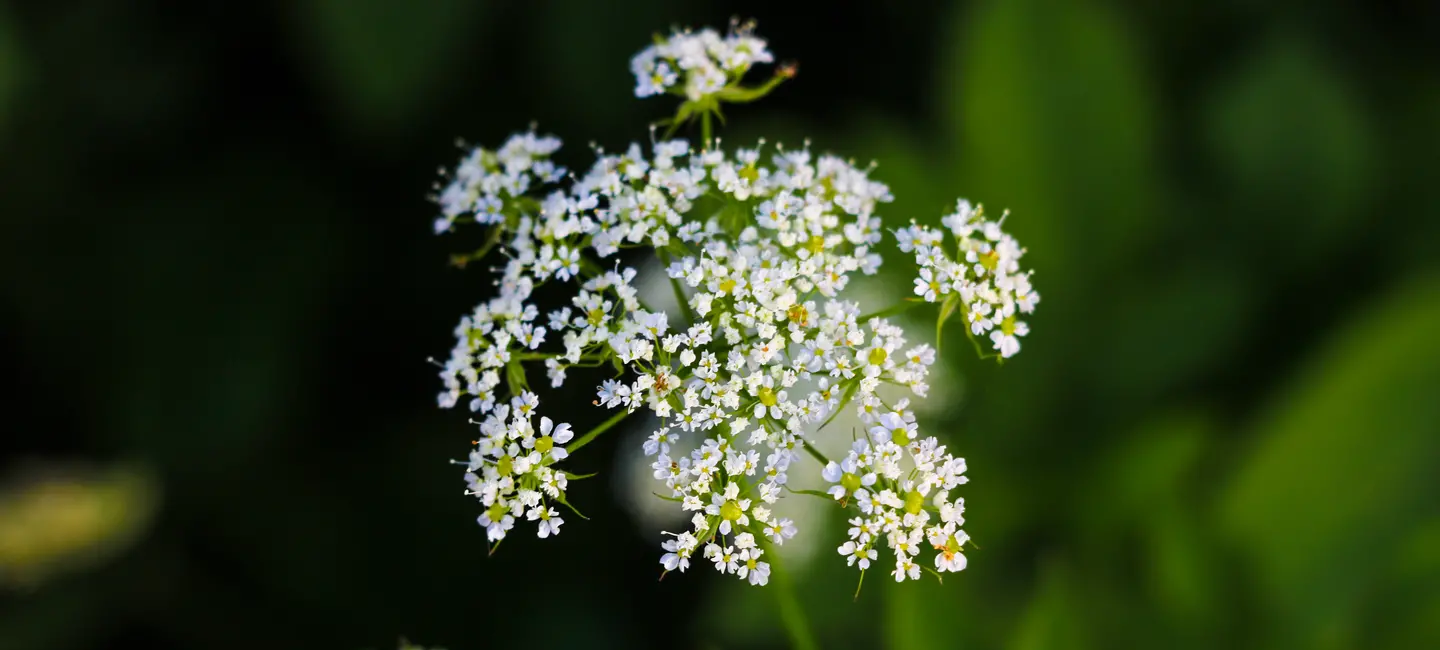
Bishop's weed is a flowering plant. The seeds are used to make medicine.
Bishop's weed is used for asthma, chest pain (angina), kidney stones, a skin disorder that causes white patches to develop on the skin (vitiligo), and scaly, itchy skin (psoriasis), but there is no good scientific evidence to support these uses.
Be careful not to confuse bishop's weed (Ammi majus) with its more commonly used relative, khella (Ammi visnaga).
Is It Effective?
NatMed Pro rates effectiveness based on scientific evidence according to the following scale: Effective, Likely Effective, Possibly Effective, Possibly Ineffective, Likely Ineffective, Ineffective, and Insufficient Evidence to Rate.
- Asthma.
- Chest pain (angina).
- Kidney stones.
- Fluid retention.
- Scaly, itchy skin (psoriasis).
- White patches to develop on the skin (vitiligo).
- Other conditions.
More evidence is needed to rate the effectiveness of bishop's weed for these uses.
Is it Safe?
Bishop's weed contains several chemicals that can make the skin more sensitive to sunlight.
When taken by mouth: There isn't enough reliable information to know if bishop's weed is safe. It might cause nausea, vomiting, and headache. Some people are allergic to bishop's weed.
When applied to the skin: There isn't enough reliable information to know if bishop's weed is safe. It may cause the skin to become extra sensitive to the sun. This might put you at greater risk for skin cancer. Wear sunblock outside, especially if you are light-skinned.
Special Precautions & Warnings:
Pregnancy: It's LIKELY UNSAFE to use bishop's weed if you are pregnant. It contains a chemical called khellin that can cause the uterus to contract. This might threaten the pregnancy.
Breast-feeding: There isn't enough reliable information to know if bishop's weed is safe to use when breast-feeding. Stay on the safe side and avoid use.
Surgery: Bishop's weed might slow blood clotting. There is a concern that it might increase the risk of bleeding during and after surgery. Stop using bishop's weed at least 2 weeks before a scheduled surgery.
Medications changed by the liver (Cytochrome P450 3A4 (CYP3A4) substrates)
Interaction Rating=Moderate Be cautious with this combination.
Some medications are changed and broken down by the liver. Bishop's weed might decrease how quickly the liver breaks down some medications. Taking bishop's weed along with some medications that are broken down by the liver can increase the effects and side effects of some medications. Before taking bishop's weed, talk to your healthcare provider if you are taking any medications that are changed by the liver.
Some medications changed by the liver include lovastatin (Mevacor), ketoconazole (Nizoral), itraconazole (Sporanox), fexofenadine (Allegra), triazolam (Halcion), and many others.
Medications that increase sensitivity to sunlight (Photosensitizing drugs)
Interaction Rating=Moderate Be cautious with this combination.
Some medications can increase sensitivity to sunlight. Bishop's weed might also increase your sensitivity to sunlight. Taking bishop's weed along with medication that increases sensitivity to sunlight could increase the chances of sunburn, blistering, or rashes on areas of skin exposed to sunlight. Be sure to wear sunblock and protective clothing when spending time in the sun.
Some drugs that cause photosensitivity include amitriptyline (Elavil), Ciprofloxacin (Cipro), norfloxacin (Noroxin), lomefloxacin (Maxaquin), ofloxacin (Floxin), levofloxacin (Levaquin), sparfloxacin (Zagam), gatifloxacin (Tequin), moxifloxacin (Avelox), trimethoprim/sulfamethoxazole (Septra), tetracycline, methoxsalen (8-methoxypsoralen, 8-MOP, Oxsoralen), and Trioxsalen (Trisoralen).
Medications that slow blood clotting (Anticoagulant/Antiplatelet drugs)
Interaction Rating=Moderate Be cautious with this combination.
Bishop's weed might slow blood clotting. Taking bishop's weed along with medications that also slow clotting might increase the chances of bruising and bleeding.
Some medications that slow blood clotting include aspirin, clopidogrel (Plavix), diclofenac (Voltaren, Cataflam, others), ibuprofen (Advil, Motrin, others), naproxen (Anaprox, Naprosyn, others), dalteparin (Fragmin), enoxaparin (Lovenox), heparin, warfarin (Coumadin), and others.
Herbs and supplements that might slow blood clotting: Bishop's weed might slow blood clotting. Using it with other herbs that have this same effect might increase the chance of bruising and bleeding. Avoid this combination. Some of the herbs that seem to slow blood clotting are angelica, anise, arnica, asafoetida, bogbean, boldo, capsicum, celery, chamomile, clove, fenugreek, feverfew, garlic, ginger, ginkgo, Panax ginseng, horse chestnut, horseradish, licorice, meadowsweet, onion, prickly ash, papain, passionflower, poplar, quassia, red clover, turmeric, wild carrot, wild lettuce, willow, and others.
Herbs that might increase sensitivity to sunlight: Bishop's weed seems to increase sensitivity to sunlight. Taking bishop's weed along with other herbs, such as St. John's wort, that also increase sensitivity to sunlight could increase the chances of sunburn, blistering, or rashes on areas of skin exposed to sunlight.
There are no known interactions with foods.
The appropriate dose of bishop's weed depends on several factors such as the user's age, health, and several other conditions. At this time there is not enough scientific information to determine an appropriate range of doses for bishop's weed. Keep in mind that natural products are not always necessarily safe and dosages can be important. Be sure to follow relevant directions on product labels and consult your pharmacist or physician or other healthcare professional before using.
Ajava Seeds, Ajowan, Ajowan Caraway, Ajowan Seed, Ajowanj, Ajwain, Ajwan, Ameo Bastardo, Ammi Commun, Ammi Élevé, Ammi glaucifolium, Ammi Inodore, Ammi majus, Ammi Officinal, Bishop's Flower, Bisnague, Bullwort, Carum, Espuma del Mar, Flowering Ammi, Grand Ammi, Omum, Yavani.
Information on this website is for informational use only and is not intended to replace professional medical advice, diagnosis, or treatment. While evidence-based, it is not guaranteed to be error-free and is not intended to meet any particular user’s needs or requirements or to cover all possible uses, safety concerns, interactions, outcomes, or adverse effects. Always check with your doctor or other medical professional before making healthcare decisions (including taking any medication) and do not delay or disregard seeking medical advice or treatment based on any information displayed on this website.
© TRC Healthcare 2024. All rights reserved. Use and/or distribution is permitted only pursuant to a valid license or other permission from TRC Healthcare.
